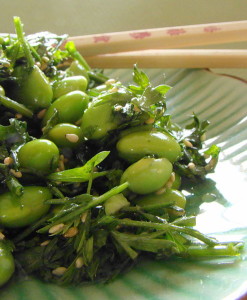Scientists are Certain we Are Living in the Anthropocene
 Although some GOP candidates would disagree with this but real scientists are saying we are living in the Anthropocene, viewed as the period during which human activity has been been the dominant influence on climate and the environment. The scientists note that we are likely in the beginning stages of a sixth mass-extinction event, but that “evolution and extinction rates are mostly too slow and diachronous to provide an obvious biological marker for the start of the Anthropocene.” A new study published in Science, is a laundry list of human sins that, in total, add up to what its authors say is irrefutable evidence that Earth has entered a human-driven geological epoch that began midway through the 20th century and continues today.
Although some GOP candidates would disagree with this but real scientists are saying we are living in the Anthropocene, viewed as the period during which human activity has been been the dominant influence on climate and the environment. The scientists note that we are likely in the beginning stages of a sixth mass-extinction event, but that “evolution and extinction rates are mostly too slow and diachronous to provide an obvious biological marker for the start of the Anthropocene.” A new study published in Science, is a laundry list of human sins that, in total, add up to what its authors say is irrefutable evidence that Earth has entered a human-driven geological epoch that began midway through the 20th century and continues today.
Is Chipotle a Victim of Corporate Sabotage?
As recent events have been unfolding for the Mexican food chain, they are now under a criminal investigation by the federal government for the e.coli outbreak in 2015. But some are saying that this has been a result of Chipotle’s outspoken views on removing GMO’s from their menu. With the company booming since 1993, going GMO free would be a tremendous step forward, and would set the standard for other big companies to follow suit. Would it be far fetched to say that this is biotech corporate sabotage to ruin Chipotle’s reputation and possibly close them for good? I for one might believe it to be true.
Neonic-Treated Soybean Seeds Aren’t Helping Farmers Kill Pests

 One of the most common—and most controversial—insecticides used on soybeans grown in the United States might not be doing exactly what farmers are hoping it would. Planting fields with soy seeds pretreated with neonicotinoids, according to a new study, isn’t going to help combat the crop’s major pest. The study, published by a coalition of Midwestern universities, led by Purdue, suggests that neonic seed treatments are, for soy at least, a blunt instrument that causes far more devastation for the surrounding environment than the pests being targeted.
One of the most common—and most controversial—insecticides used on soybeans grown in the United States might not be doing exactly what farmers are hoping it would. Planting fields with soy seeds pretreated with neonicotinoids, according to a new study, isn’t going to help combat the crop’s major pest. The study, published by a coalition of Midwestern universities, led by Purdue, suggests that neonic seed treatments are, for soy at least, a blunt instrument that causes far more devastation for the surrounding environment than the pests being targeted.
Comments are closed.